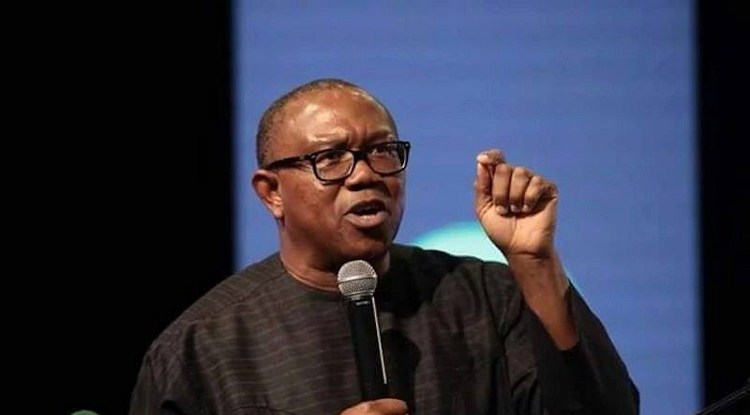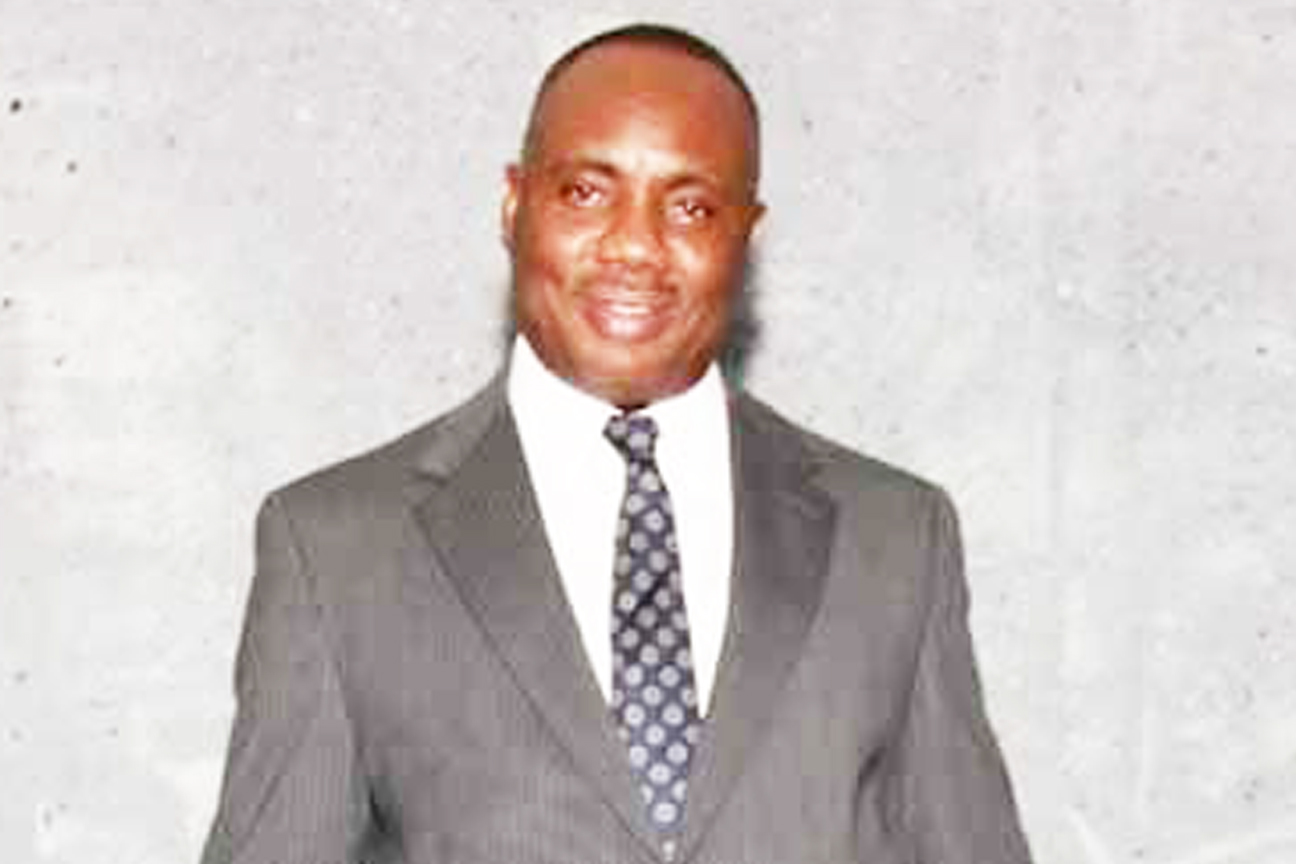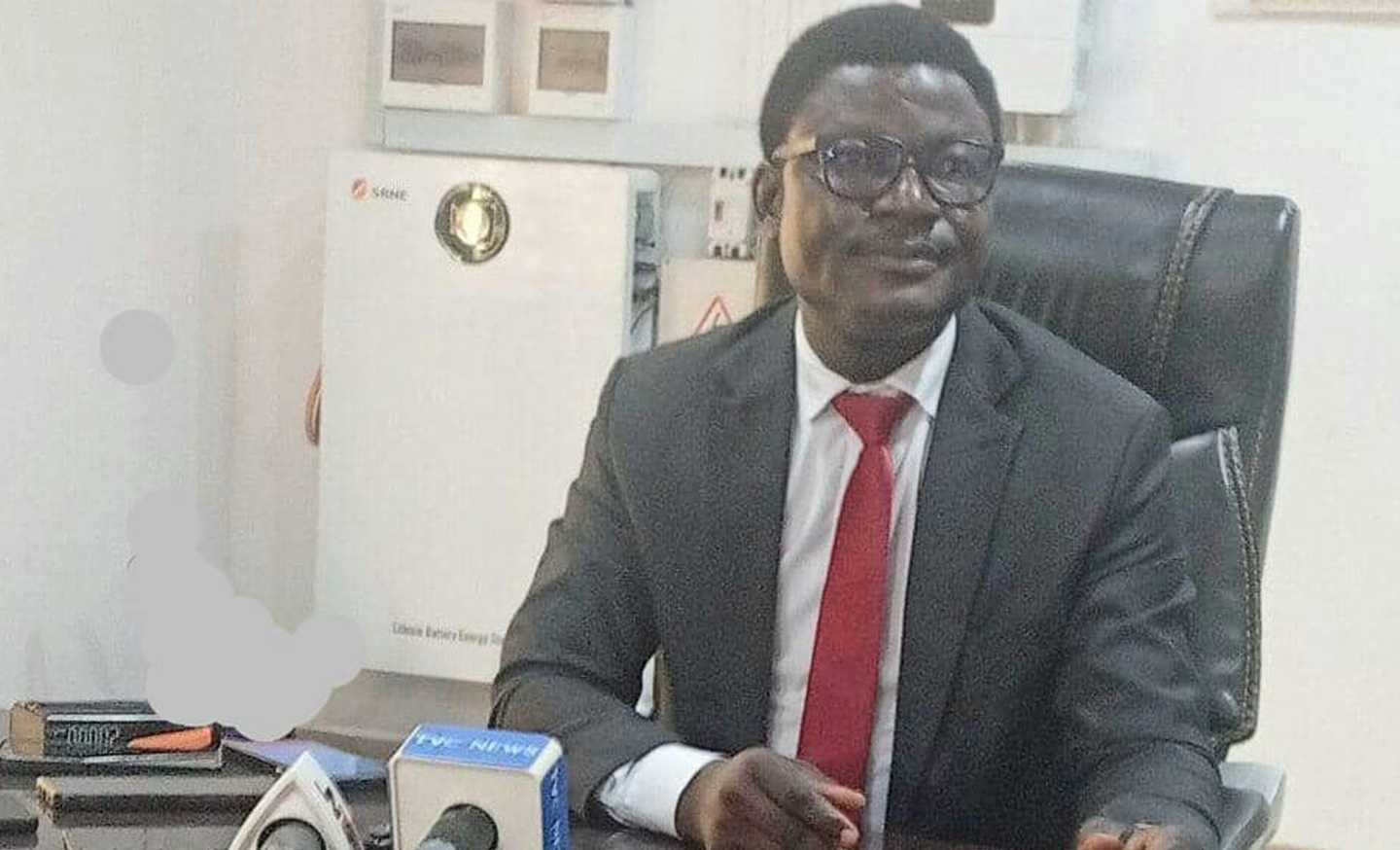Nigeria
Nigeria’s former CJN, governors, pastors named in Pandora Papers

- The Pioneer’s Burden: Building the First Private Network in a Vacuum of Power - November 4, 2025
- Houston and Owerri Community Mourn the Passing of Beloved Icon, Lawrence Mike Obinna Anozie - October 3, 2025
- Houston Gets a Taste of West Africa at Chef Kavachi’s ‘Art of Fufu’ Show, August 8 - July 30, 2025
Books
The Pioneer’s Burden: Building the First Private Network in a Vacuum of Power

- Book Title: The Making of Bourdex Telecom
- Author: David Ogba Onuoha Bourdex
- Publishers: Bourdex
- Reviewer: Emeaba Emeaba
- Pages: 127
In the history of Nigerian entrepreneurship, stories of audacity often begin with frustration. A man waits hours in a dimly lit government office to place a single overseas call, his ambitions held hostage by bureaucracy. From that moment of exasperation, an empire begins. Such is the animating pulse of The Making of Bourdex Telecom, David Ogba Onuoha Bourdex’s sweeping autobiographical account of one man’s effort to connect the disconnected and to rewrite the telecommunications map of Eastern Nigeria.

At once memoir, corporate history, and national parable, the book reconstructs the emergence of Bourdex Telecommunications Limited—the first indigenous private telecom provider in Nigeria’s South-East and South-South regions—against a backdrop of inefficiency, corruption, and infrastructural neglect. Its author, a businessman turned visionary, narrates not merely how a company was built but how a new horizon of possibility was forced open in a society long accustomed to closed doors.
Bourdex begins with a stark diagnosis of pre-deregulation Nigeria: a nation of over 120 million people served by fewer than a million telephone lines. Through a mix of statistical precision and personal recollection, he paints a portrait of communication as privilege, not right—of entire regions condemned to silence by state monopoly. His storytelling thrives in such contrasts: the entrepreneur sleeping upright in Lagos’s NET building to place an international call; the Italian businessman in Milan conducting deals with two sleek mobile phones. That juxtaposition—between deprivation and effortless connectivity—serves as the book’s moral axis.
From these moments of contrast, Bourdex constructs the founding myth of his enterprise. What began as an irritation became a revelation, then a crusade. “I saw a people left behind,” he writes, “a region cut off while others dialed into the future.” His insistence on framing technology as a means of liberation rather than profit underscores the moral ambition that threads through the book. The Making of Bourdex Telecom reads not like a manual of business success but like an ethical manifesto: to build not simply for gain, but for dignity.
As the chapters unfold, Bourdex’s narrative oscillates between vivid personal storytelling and granular technical detail. He recounts his early business dealings in the 1980s and ’90s, the bureaucratic mazes of NITEL, and the daring pursuit of a telecommunications license under General Sani Abacha’s military government. There is a cinematic quality to his recollections—the tense midnight meetings in Abuja, the coded alliances with military officers, the improbable friendships that turned policy into possibility.
These sections recall Chinua Achebe’s The Trouble with Nigeria in tone and intention: both works diagnose the systemic failures of governance but find redemption in individual initiative. Yet Bourdex’s narrative differs in form. Where Achebe offered moral critique, Bourdex offers demonstration—an anatomy of perseverance in motion. He documents the letters, negotiations, and international correspondences with Harris Canada, showing how an indigenous company emerged through sheer force of will and global collaboration.
Such passages risk overwhelming the reader with acronyms, specifications, and telecom jargon—R2 signaling, SS7 interconnection, E1 circuits—but they also lend the book an authenticity rare in corporate memoirs. What might have been opaque technicalities become, under Bourdex’s hand, instruments of drama. The machinery of communication becomes metaphor: wires and waves as extensions of faith and tenacity.
To situate The Making of Bourdex Telecom within Nigeria’s socio-political history is to confront the paradox of private enterprise under public decay. The book chronicles the twilight of NITEL’s monopoly, the hesitant dawn of deregulation, and the emergence of entrepreneurial actors who filled the void left by government paralysis. In this sense, Bourdex’s story parallels that of other indigenous pioneers—figures such as Mike Adenuga and Jim Ovia—whose ventures in telecommunications and banking transformed the national economy from the late 1990s onward.
Yet Bourdex’s tone is less triumphant than reflective. He does not romanticize deregulation; he portrays it as both opportunity and ordeal. The government’s inertia, the labyrinthine licensing process, and the outright extortion by state agencies form the darker undertones of his tale. His clash with NITEL’s leadership—recounted with controlled indignation—stands as one of the book’s most gripping sequences. When a senior official demanded an illegal payment of ₦20.8 million for interconnection rights, Bourdex’s defiant reply, “You are not God,” rang out like an act of civil disobedience. In such moments, the narrative transcends the genre of business autobiography and enters the moral theatre of national reform. The entrepreneur becomes citizen-prophet, challenging a corrupt establishment with the rhetoric of justice and self-belief. That blending of economic narrative with civic conscience is perhaps the book’s most compelling feature.
Stylistically, The Making of Bourdex Telecom occupies an intriguing space between oral history and polished memoir. The prose is direct, rhythmic, and often sermonic, reflecting its author’s background as both businessman and public speaker. Anecdotes unfold with the cadences of storytelling; sentences sometimes pulse with the energy of spoken word: “Amateurs built the Ark. Professionals built the Titanic.” The repetition of such aphorisms imbues the work with a sense of conviction, though occasionally at the expense of subtlety.
Where the book excels is in its evocation of atmosphere—the dusty highways between Aba and Lagos, the sterile corridors of power in Abuja, the crisp air of Calgary where the author first glimpsed technological modernity. These scenes transform what could have been a linear corporate chronicle into a textured work of memory.
Still, the narrative structure is not without flaws. The absence of an external editor’s restraint is occasionally felt in the pacing; digressions into technical exposition or moral reflection sometimes interrupt narrative flow. Readers accustomed to the concise storytelling of international business memoirs—Phil Knight’s Shoe Dog or Elon Musk’s authorized biography—may find the prose dense in places. Yet such density mirrors the complexity of the terrain Bourdex navigated. His sentences, like his towers, are built from layers of persistence.
Beyond its entrepreneurial chronicle, the book doubles as social history—a record of Eastern Nigeria’s encounter with modernization. The chapters on “The FUTO Boys,” a cadre of young engineers recruited from the Federal University of Technology, Owerri, offer a microcosm of the new Nigerian professional class emerging in the late 1990s: educated, idealistic, and determined to prove that technical expertise could thrive outside the state. Their improvisations—installing antennas by candlelight, building networks amid power outages—embody the collective grit that sustained Bourdex’s vision.
The narrative’s cumulative effect is generational. Through the story of one company, we glimpse a society in transition—from analogue isolation to digital awakening. The book captures that liminal moment when the sound of a dial tone became a symbol of freedom.
Running through The Making of Bourdex Telecom is a persistent theology of success. Bourdex attributes every turn in his journey to divine orchestration: friendships “placed by the Invisible Hand,” setbacks reinterpreted as “divine redirections.” Such language, while characteristic of Nigerian entrepreneurial spirituality, acquires here an almost literary force. It recasts corporate history as providential narrative, where the invisible infrastructure of grace mirrors the visible architecture of towers and transmitters.
For some readers, this piety may feel excessive; yet it provides the emotional coherence of the book. The author’s faith is not ornamental—it is constitutive. Without it, the story of Bourdex Telecom would read as mere ambition. With it, it becomes vocation.
The foreword by Abia State Governor Alex Otti and the preface by former Anambra Governor Peter Obi frame the book as both inspiration and instruction. They read Bourdex’s career as parable: the triumph of private initiative over public inertia. Yet their presence also situates the work within Nigeria’s broader discourse on nation-building. The Making of Bourdex Telecom is not only the autobiography of an entrepreneur; it is a treatise on indigenous agency—on what happens when Africans cease to wait for imported solutions and begin to engineer their own.
In this respect, the book extends its influence beyond its immediate industry. Its lessons—about courage, timing, friendship, and faith—extend to any field where innovation must contend with adversity.
Judged as a work of literature, The Making of Bourdex Telecom is direct and sincere. Its prose favors clarity over ornament, and its authenticity gives the story a compelling sense of truth. Bourdex writes not to embellish, but to bear witness—to a time, a struggle, and a conviction that technology could serve humanity. The result is a hybrid work: part documentary, part sermon, part memoir of enterprise.
As a contribution to Nigerian business literature, it deserves serious attention. Few firsthand accounts capture with such detail the messy birth of private telecommunications in the 1990s—a revolution that reshaped the country’s economic and social fabric. In its pages, we hear both the crackle of the first connected call and the larger resonance of a people finding their voice.
Bourdex’s central message endures: progress begins when frustration becomes purpose. His journey from the backrooms of NITEL to the boardrooms of international telecoms is not merely personal triumph; it is a chapter in Nigeria’s unfinished story of modernization.
In the end, The Making of Bourdex Telecom stands as more than the history of a company. It is an ode to enterprise as nation-building, and to the stubborn optimism of those who refuse to let silence define them.
See the book on Amazon: >>>>>
_________
♦ Dr. Emeaba, the author of “A Dictionary of Literature,” writes dime novels in the style of the Onitsha Market Literature sub-genre.
- The Pioneer’s Burden: Building the First Private Network in a Vacuum of Power - November 4, 2025
- Houston and Owerri Community Mourn the Passing of Beloved Icon, Lawrence Mike Obinna Anozie - October 3, 2025
- Houston Gets a Taste of West Africa at Chef Kavachi’s ‘Art of Fufu’ Show, August 8 - July 30, 2025
Houston
Houston and Owerri Community Mourn the Passing of Beloved Icon, Lawrence Mike Obinna Anozie

Houston was thrown into mourning on September 19, 2025, following the sudden passing of businessman and community advocate Lawrence Mike Obinna Anozie, who peacefully joined his ancestors. Immediate family member in Houston, Nick Anozie, confirmed his untimely death and expressed gratitude for the outpouring of love and condolences from both the Houston and Owerri communities.
Lawrence was born to Chief Alexander and Lolo Ether Anozie of Owerri in Imo State, Nigeria, and will be dearly remembered by family members, friends, and the entire Houston community.
An accomplished accountant, the late Lawrence incorporated and successfully managed three major companies: Universal Insurance Company, LLC, Universal Mortgage LLC, and Universal Financial Services. Through these enterprises, he not only built a thriving business career but also created opportunities for countless individuals to achieve financial stability. His contributions to entrepreneurship and community development will remain a lasting legacy.
According to the family, arrangements for his final funeral rites are in progress and will be announced in due course.
Lawrence will forever be remembered as a loving and compassionate man who dedicated much of his life to uplifting others. He helped countless young Nigerians and African Americans overcome economic challenges by providing mentorship, financial guidance, and career opportunities. His generosity touched the lives of many who otherwise might not have found their footing. A devout Catholic, he was unwavering in his faith and never missed Mass, drawing strength and inspiration from his church community. To those who knew him, Lawrence was not only a successful businessman but also a pillar of kindness, humility, and faith whose legacy of service and compassion will continue to inspire generations.
For more information, please contact Nick Anozie – 832-891-2213
- The Pioneer’s Burden: Building the First Private Network in a Vacuum of Power - November 4, 2025
- Houston and Owerri Community Mourn the Passing of Beloved Icon, Lawrence Mike Obinna Anozie - October 3, 2025
- Houston Gets a Taste of West Africa at Chef Kavachi’s ‘Art of Fufu’ Show, August 8 - July 30, 2025
News
Enugu Revenue Leader Details Tax Plans, Commits to Responsible Fund Management

In a bid to address rising public concerns and social media speculations about taxation in Enugu State, the Executive Chairman of the Enugu State Internal Revenue Service (ESIRS), Emmanuel Nnamani, has provided clarifications on the government’s tax policies. During a press briefing in Enugu, Nnamani dismissed what he described as “false and misleading claims” and reassured residents that the government’s fiscal operations are firmly rooted in law, transparency, and public good.
Clarifying Misinformation and Affirming Legality
Nnamani opened the session by stressing that no taxes or levies in Enugu State are imposed outside the provisions of the law. “Taxes and revenues in Enugu State remain within the limits of the law. We do not impose any levies outside what the law permits,” he stated, pointing to the Personal Income Tax Act (as amended) as the guiding legal framework.
He explained that the ESIRS collects personal income tax through two lawful means: Pay-As-You-Earn (PAYE) for those in formal employment, and Direct Assessment for informal sector workers. While compliance among salaried workers has been largely smooth, the agency sometimes employs legal enforcement mechanisms to ensure compliance among self-employed individuals.
Formalising the Informal Sector
A key challenge, he noted, has been bringing the informal sector—especially market traders and transport operators—into the formal tax net. Upon assuming office, his administration discovered that an overwhelming 99% of informal sector actors were not remitting taxes to the state, largely due to the disruptive influence of non-state actors engaged in illegal collections.
In response, the government introduced a consolidated ₦36,000 annual levy for market traders. This amount, payable between January and March, covers all relevant state-level charges, including those by the Enugu State Waste Management Agency (ESWAMA), Enugu State Structures for Signage and Advertisement Agency (ENSSAA), storage fees, and business premises levies. “Once this amount is paid between January and March, the trader owes nothing else for that year,” Nnamani clarified. Traders who fail to pay by March 31 are subject to enforcement.
For street vendors operating outside structured markets, an annual levy of ₦30,000 applies, with ESWAMA charges handled separately. Transport operators such as Okada riders, Keke drivers, minibuses, tankers, and trucks pay via a daily ticketing system.
A Human-Faced Approach to Enforcement
Although the law allows for a 10% penalty on unpaid tax and an interest charge tied to the Central Bank’s Monetary Policy Rate of 27.5%, Nnamani disclosed that the state has adopted a softer, pro-business approach. Instead of the full punitive charges, a flat ₦3,000 penalty is applied in most informal sector cases to promote ease of doing business and encourage voluntary compliance.
Taxation and the Cost of Rent
Addressing growing concerns over rising rent, Nnamani rejected claims linking the trend to state tax policies. He described the issue as a national challenge influenced by supply and demand, rather than fiscal policy.
Citing personal experiences dating back to 2015, he observed that a shift in private development preference – from rental apartments to gated residential estates – has contributed to the housing squeeze. “If we had more high-rise buildings, rent would drop,” he noted. The state government, he added, is taking proactive steps through the Ministry of Housing and Housing Development Corporation to build mass housing and student hostels near institutions like ESUT and IMT, freeing up central city housing and helping moderate rents.
Technology, Transparency, and Trust
In line with its commitment to transparency and digital innovation, the ESIRS has launched a tax calculator on its official portal – www.irs.en.gov.ng – allowing residents to compute their taxes with ease and clarity. “This is about transparency and giving our people confidence,” he said, inviting residents to compare Enugu’s tools with those in more advanced states like Lagos.
Understanding the Cost of Development
Responding to concerns that Enugu has become one of Nigeria’s most expensive states, Nnamani acknowledged the perception but clarified that the temporary inflation is largely demand-driven. With Enugu undertaking widespread infrastructural renewal – including smart schools, primary health centres, and hospitality infrastructure – the surge in construction activity has led to increased demand for building materials like granite and rods, which are sourced from other states.
“Once these projects are completed, demand will drop, and prices will stabilise,” he assured. He emphasised that the projects are visible testaments to what taxpayers’ money can achieve when properly managed.
A Call for Mutual Understanding and Civic Partnership
More than a tax clarification, Nnamani’s address served as a reminder of the symbiotic relationship between citizens and government. He appealed for public understanding, noting that when citizens fulfil their tax obligations, the government can, in turn, provide essential services and infrastructure that uplift everyone.
His message was clear: responsible taxation, managed transparently and invested wisely, is the bedrock of sustainable development. From roads to schools and healthcare to housing, Enugu State is demonstrating how taxpayers’ money, when efficiently deployed, can improve lives and build the future.
- The Pioneer’s Burden: Building the First Private Network in a Vacuum of Power - November 4, 2025
- Houston and Owerri Community Mourn the Passing of Beloved Icon, Lawrence Mike Obinna Anozie - October 3, 2025
- Houston Gets a Taste of West Africa at Chef Kavachi’s ‘Art of Fufu’ Show, August 8 - July 30, 2025





















